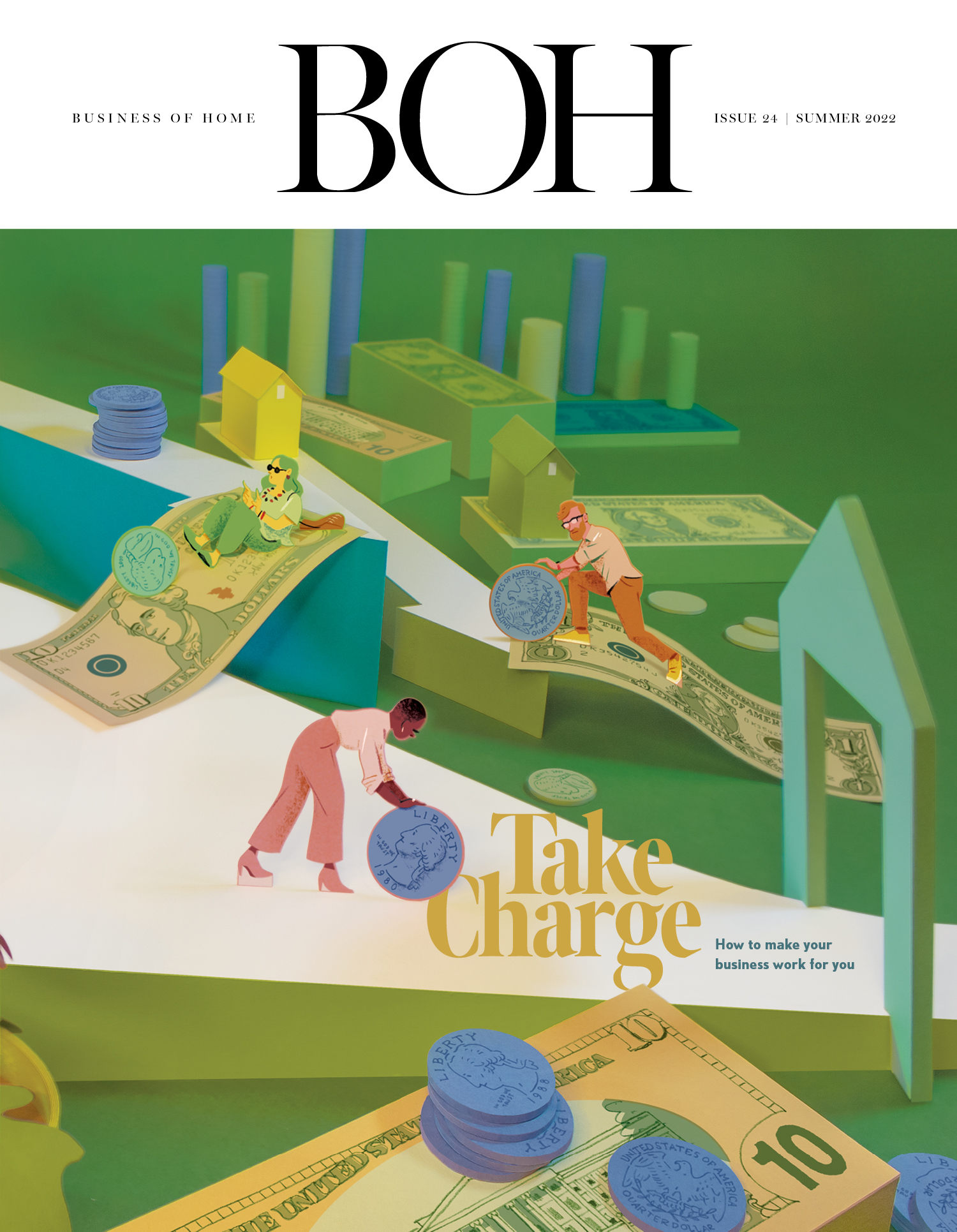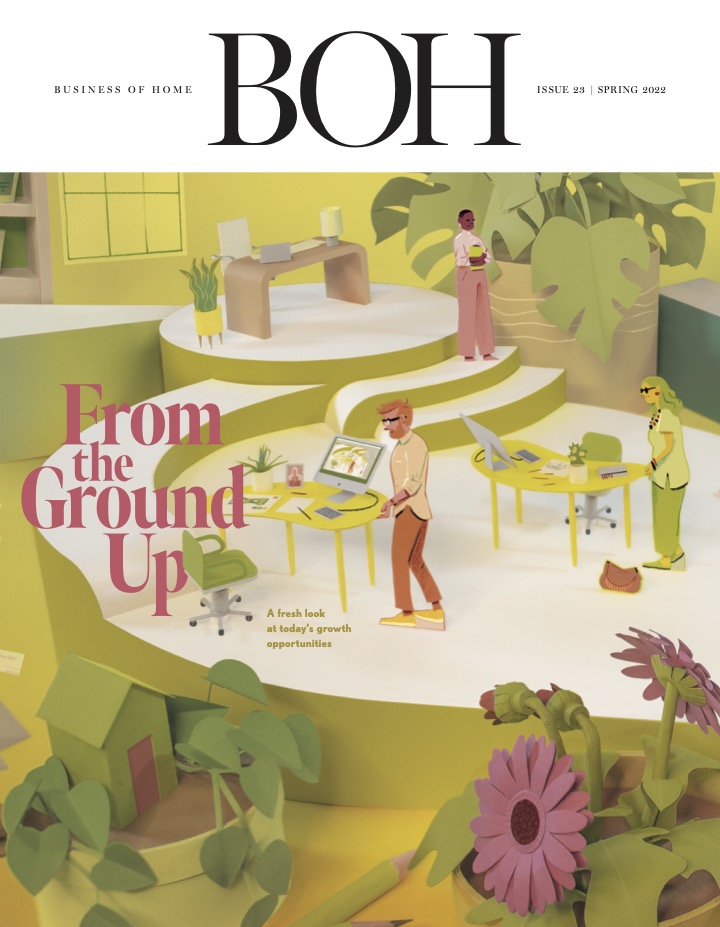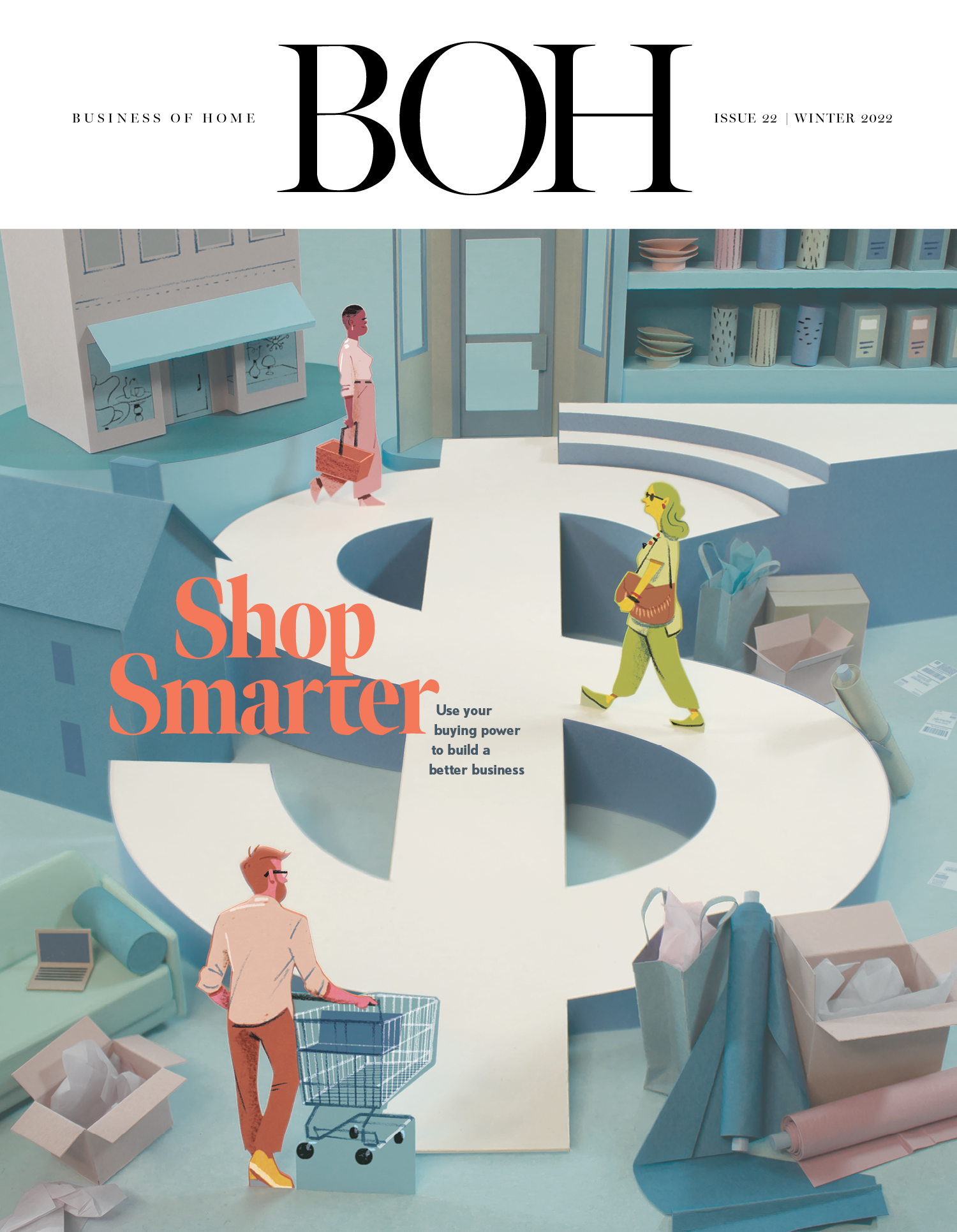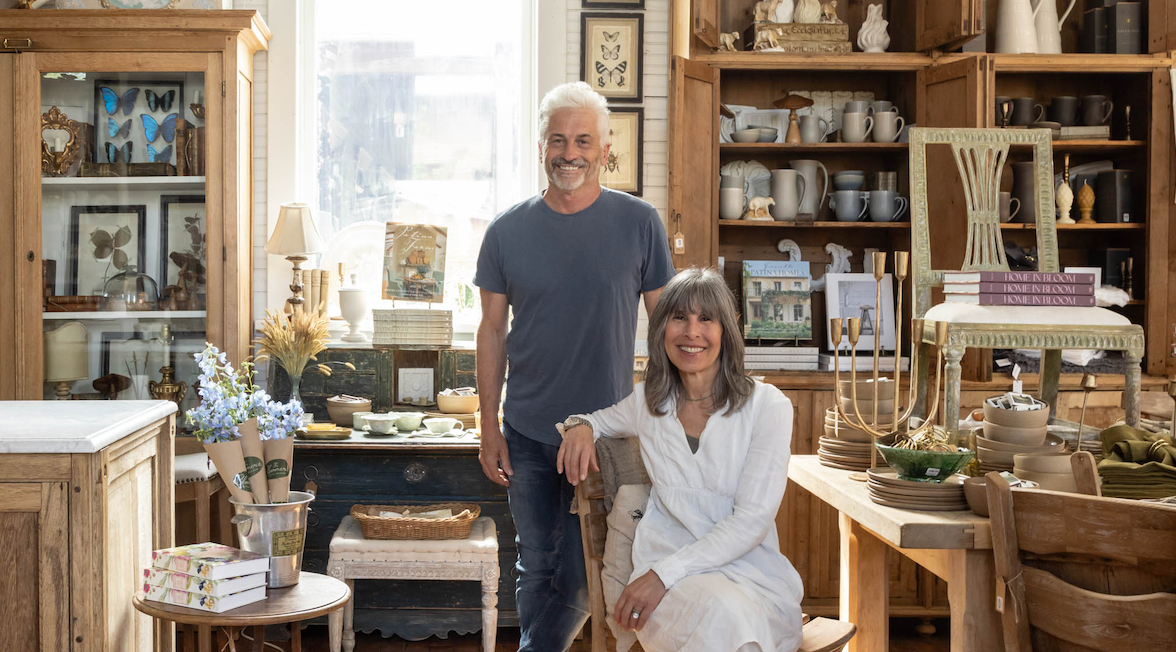After a chance encounter at a Cheesecake Factory more than 37 years ago in Los Angeles, Brooke and Steve Giannetti began dating, then got engaged and married within a year, and have been together ever since. Early on, the partnership carried over to their professional lives: Brooke was managing the business side of Steve’s architecture company until he approached her with the idea that she could help design a couple of kids bedrooms in a client’s home. “Of course, Brooke ended up doing the whole house, and that started it all,” Steve tells host Dennis Scully on the latest episode of The Business of Home Podcast.
The duo, formerly based in Santa Monica, began designing homes together, but a desire for a slower way of life eventually took them to Ojai and then to Nashville. The couple’s Patina empire, named after their appreciation for aged objects with character, was born out of their new lifestyle—and it now encompasses an architecture and design firm, a series of books, a Tennessee home and garden shop, and a farm where they raise a menagerie of sheep, donkeys, goats and highland cattle. “We wanted to have a more real-world experience, and weren’t able to [in California], and it’s been very exciting to kind of explore that here in Tennessee,” says Brooke. “That has been so wonderful, meeting so many people and becoming part of a community so quickly after moving here.”
Before the couple found success, they were met with a dilemma many early-career designers face: Should Brooke attend design school? Steve was hesitant, worried that a formal education could spoil her natural eye. “That was her greatest strength: just feeling things. I think it’s a lot of things that people lose—you get it educated out of you, your feelings,” says Steve, who realized his own schooling put him in a rule-based box. Brooke speculates that he might have been right. “If they gave me a formula on how to do it, I’d probably be like, Oh, OK, I’ll just do that,” she says. “If you gave me rules, I’d probably follow them.” She didn’t end up going, and has continued to do projects guided by her gut.
Elsewhere in the episode, the couple discusses how working with animals informs their lives and their business and why all designers should be curious, not fearful, about new technology.
Crucial insight: To keep clients engaged throughout the whole process, the couple makes unbuilt spaces as tangible as possible. “You have to get to a design that is so compelling that they just want to live there,” says Steve. “You build this image of it in the distance. They have to sort of treat it like it already exists, and you have to keep thinking about it that way.” He asks clients to imagine a day in the home and how they visualize each room’s function. Whether a Saturday morning with the kids or a low-key Monday evening, that exercise builds muscle memory of a house that doesn’t exist yet. Brooke will compile a selection of fabrics and pieces to help spur that process even further. “Finding a great old mantel, or something that gives you a sense of what you know—that kind of attachment to the history of a piece can set a tone for a room, and gets a client excited about what that space is going to feel like,” she says. “There are ways to get people moving toward what will be, versus being stuck in the soup of what is.”
This episode is sponsored by Loloi and Annie Selke. Listen to the show below. If you like what you hear, subscribe on Apple Podcasts or Spotify.
The Thursday Show
BOH executive editor Fred Nicolaus and host Dennis Scully discuss the biggest news in the industry, including the debut of Amazon’s ultracheap marketplace, a check-in on the housing market, and how tariffs might impact the home industry. Later, designer Ken Fulk joins the show to talk about his new Southern California retail outpost.
This episode is sponsored by Kohler and Klafs. Listen to the show below. If you like what you hear, subscribe on Apple Podcasts or Spotify.





























